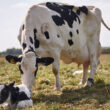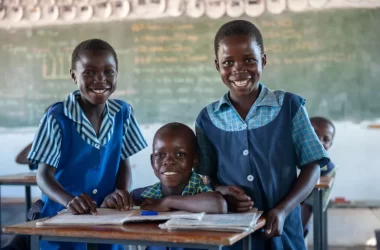Phaphamani irrigation – a story of resilience
 By Conrad Mwanawashe, in Umguza, Matabeleland North
By Conrad Mwanawashe, in Umguza, Matabeleland North
“They left without being chased away,” said Gershom Dube, reflecting on the many members who abandoned the Phaphamani Irrigation Scheme.
“Farming requires sacrifice. They started to retreat because of the challenges we faced along the way.”
This is the story of the Phaphamani Irrigation Scheme in Ward 19 of Umguza District, Matabeleland North province—one of 260 such schemes scattered across the country.
Phaphamani began with 120 members in 2002. As challenges mounted, many pulled out, leaving only 12 resilient members to work the 50-hectare scheme.
“I would like to thank those members for their resilience, their sacrifice, their resistance under very difficult conditions,” said Dube, who is responsible for security at the scheme.
Phaphamani members’ resilience has not gone unnoticed. The scheme has attracted the attention of a major empowerment project, the Seed Revolving Fund (SRF).
The Seed Revolving Fund, an initiative of the Zimbabwe Emergency Food Production Project (ZEFPP), was developed under the African Development Bank’s African Emergency Food Production Facility (AEFPF). Managed by AFC Land and Development Bank, the project has supported five cropping seasons—three winter wheat and two summer maize—enhancing agricultural productivity and resilience.
Key Achievements
- 17,048 farmers supported (100.25% of target)
- Maize yields increased from 3.1t/ha to 4t/ha
- High loan recovery rates: 97.49% (2023 wheat), 96.71% (2023/24 maize), 92.03% (2024 wheat)
- Gender inclusion: ~40% of beneficiaries are women
- Over 35,000 indirect beneficiaries created
The project supports both farmers and the government in boosting short-term food production while building long-term food security. Its main objectives are to increase cereal and oilseed production, improve fertilizer distribution, and provide policy support to mitigate the food crisis.
Under this project, the Food and Agriculture Organisation of the United Nations (FAO)
has partnered with the AFC Land and Development Bank to manage an $8.35 million seed revolving fund.
“So far, the project has cumulatively benefited 17,048 farmers, achieving 100.25% of its two-year target and highlighting the compelling need to scale up this model,” said Dr. Patrice Talla, FAO Representative in Zimbabwe and Sub-regional Coordinator for Southern Africa.
By providing affordable financing, quality seeds, mechanization, and technical support, the project has improved food security for around 70% of participating households, boosted incomes through reinvestment in livestock, equipment, and education, and empowered women as key drivers of change. “It has helped them to wake up and to start taking care of themselves through this irrigation scheme,” said Dr. Talla.
The project, which aligns with the FAO Strategic Framework 2022–31, seeks to support the transformation to more efficient, inclusive, resilient, and sustainable agrifood systems.
“What I found remarkable at Phaphamani is how farmers are going beyond wheat production. With the support provided, they are reinvesting income into livestock, irrigated market gardening, and ensuring better education for their children. This is what true resilience looks like,” said Dr. Talla.
 Priscilla Munyeza, Managing Director of AFC Land and Development Bank, said the co-implementing agencies reached out to the most remote areas of Zimbabwe to identify viable government-established irrigation schemes. The goal was to provide them with financial services to grow crops.
Priscilla Munyeza, Managing Director of AFC Land and Development Bank, said the co-implementing agencies reached out to the most remote areas of Zimbabwe to identify viable government-established irrigation schemes. The goal was to provide them with financial services to grow crops.
“As AFC Land and Development Bank, we have assisted them with credit to allow them to pay their workers as well as pay for the required inputs. FAO, as a co-implementing partner under the AFDB facility, also brought US$5,400 under the Seed Revolving Facility,” said Munyeza.
The Seed Revolving Fund has transformed households beyond just its members. The community is seeing a growth in economic activity, and children are benefiting from better access to education.
“Before the SRF, we were struggling to put food on the table. It assisted us to procure inputs before the season starts,” said Dube. The scheme is now expecting at least five tonnes per hectare from its thriving winter wheat crop.
 “I almost resigned when we were facing challenges. The project was not bringing in any meaningful returns; instead, we were using our own money to finance it. Even my children urged me to quit, but I decided to stay on,” said Ketty Ncube, vice chairman of Phaphamani.
“I almost resigned when we were facing challenges. The project was not bringing in any meaningful returns; instead, we were using our own money to finance it. Even my children urged me to quit, but I decided to stay on,” said Ketty Ncube, vice chairman of Phaphamani.
“Now I have plenty of food and can choose what I want to eat.”
The government views irrigation schemes as a vital empowerment model.
“This is an empowerment model, especially for those directly involved. But we also appreciate that this irrigation scheme is located in a communal rural area where it has created considerable employment. This brings income into the surrounding households,” said Abraham Mashumba, Director of Business Development, Markets and Trade (BDMT). Mashumba was representing Prof. Obert Jiri, Permanent Secretary in the Ministry of Lands, Agriculture, Fisheries, Water and Rural Development.











